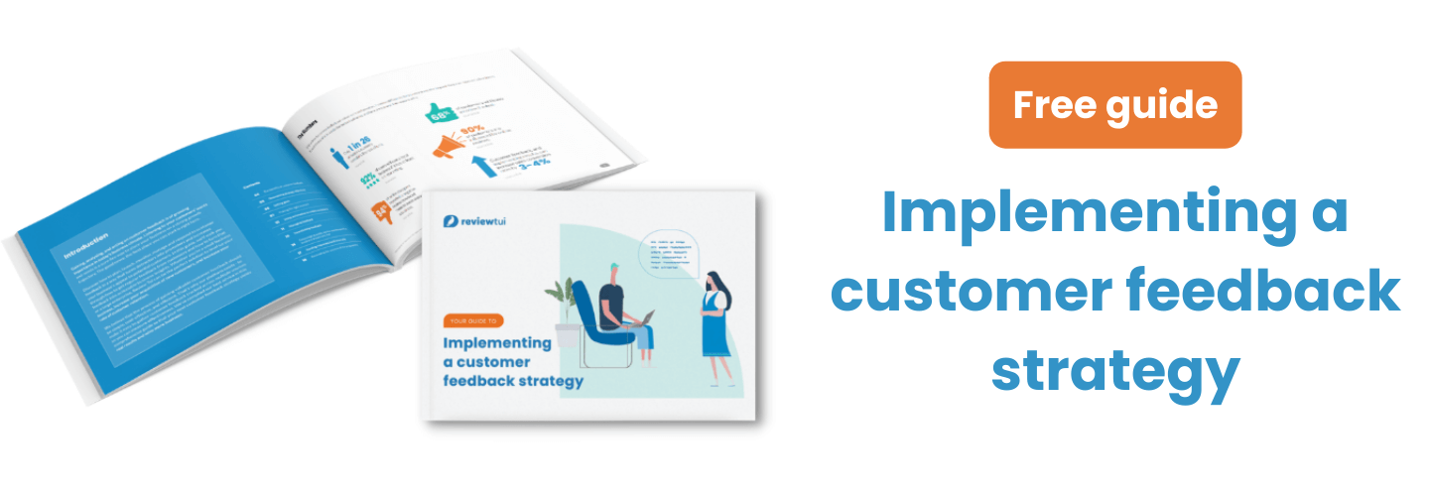What is online reputation management?
Since the rise of the digital age, being online has become an integral part of the business world. However, there are several risks involved in being online so it’s important to know how to monitor and influence your business's digital reputation. That’s where online reputation management or ORM comes in.
Online reputation management is exactly what it sounds like – managing your reputation online. Essentially it means you keep track of how people talk about your company online and encourage more constructive interactions. If done well, you can use the feedback to improve your processes and generate many more positive reviews.
Why online reputation management is important
Businesses need to engage with their customers in a way that suits them, and increasingly, that means being available online. 90% of customers will read reviews before deciding to purchase, so if you don’t have any, they’re likely to look elsewhere. This is even more pressing if your reviews are mostly negative because, for 4 out of 5 people, a negative review will cause them to reconsider buying from a brand.
Customers are your number one asset, so you need to take their opinions seriously.
If a business has an excess of bad reviews visible online, the people who see them are far less likely to engage with the brand. That’s because 83% of buyers trust online recommendations more than advertising and use reviews to decide which brand to invest in. Online reviews have become an integral part of the buyer's decision process so it’s important to keep a close eye on what your existing customers are saying.
How to manage your online reputation
No matter what your business does, it’s important to manage your online reputation appropriately. It can be daunting at first, but once you understand these few key steps, you can cultivate an online reputation that generates growth and encourages positive feedback.
Cultivate an online reputation
Firstly, it’s crucial to be visible and available for customers to leave online reviews. That means you should have a Google My Business/Google Business Page (GMB/GBP) listing and a Facebook business page and encourage existing customers to leave reviews at certain points of the buyer’s journey. For example, after a customer has bought a product, it’s a good idea to send them an invitation to leave a review in an automated email. This way you can get people's attention and encourage further engagement.
Monitor reviews frequently
If you want to keep up to date with how customers perceive your brand, you need to pay attention to what they’re saying online. Check your Google listing and Facebook business page regularly and set up automatic notifications with your ORM tools. That way whenever you receive a new review, you’ll be able to engage with it quickly and effectively.
Respond to every review
It’s good practice to respond to every online review your brand receives, no matter what it says. If you reply to reviews in a helpful, meaningful and personal way, your prospective customers will recognise that and see that your customer service is up to their standards.
The responses you give don’t have to be long, as long as you acknowledge the customer’s feelings and offer appropriate actions. For example, if the review is positive, thanking them is often enough to make them feel valued.
Responding to negative reviews correctly
The most important part of online reputation management is responding to negative reviews in a respectful and accountable way. While negative reviews are unpleasant, they are a great opportunity to demonstrate how your brand approaches customer service and how willing you are to listen to their point of view. This way, even when the initial review is negative, you can often turn them around to build customer loyalty.
Steps to take when responding to a negative review:
- Show empathy and listen to the customer’s concerns.
- Use their name and make it feel personal.
- Avoid sounding rehearsed, it should come across like an organic conversation.
- Respond directly to their problem so that they feel heard.
- Ask what you could do to improve your processes in the future.
- Follow it up with relevant action.
In following these steps, you’ll achieve two things. Firstly, the person who left the review will feel valued and be more likely to remain loyal to your brand. And secondly, everyone reading the response will appreciate how you take care of your customers and be more likely to engage with you. Read more about how you should respond to negative reviews.
Encourage more reviews
If you are wanting to cultivate a positive online reputation, it’s important to encourage customers to leave more reviews. A higher volume of reviews will mean that negative reviews have less time to linger and cause problems, and it is likely to improve your overall ratings. That doesn’t mean you need to overwhelm your customers with surveys and review links, but rather target customers at the right point of the buyer’s journey.
If you send out generalised and impersonal review requests, it’s likely to come off as spam or be ignored. However, if you personalise your requests and automate them to be sent at an opportune time, your customers are much more likely to leave meaningful online reviews. For example, a customer who has just received a product from you is far more likely to leave a positive review than one who is experiencing problems or delays. So, all you need to do is identify where your customers are happiest, and encourage them to leave a review at that point.
How to succeed with Online Reputation Management
So you know that listening to what your customers have to say is a crucial part of success, but how can you ensure your online reputation management is consistent and effective? Luckily for you, there is a quick and easy solution. There are countless feedback platforms available that will help you to keep track of everything your customers have to say. Whether that be private surveys or public online reviews, you can encourage customers to share their input and then collate all the responses in a helpful, streamlined way.
If you want to successfully manage your online reputation, an automated, intuitive and personalised feedback management platform is an invaluable tool. That’s why, later this year, Review Tui is launching software that will make customer feedback management as easy as possible. To get all the updates and more valuable tips, you can sign up for invite-only access and be the first to know all about it.



